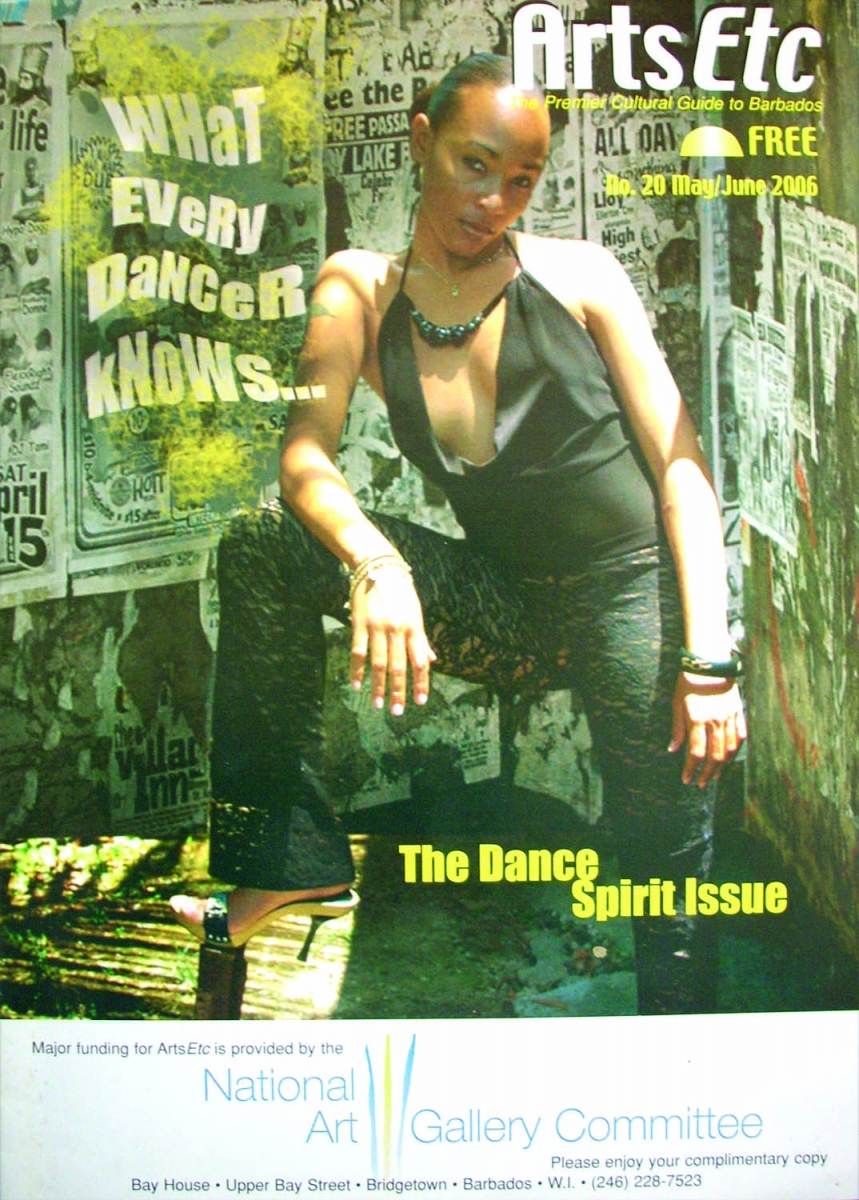
ArtsEtc Inc. 1814-6139
All works copyrighted and may not be reproduced without permission. ©2013 - hoc anno | www.artsetcbarbados.com
All works copyrighted and may not be reproduced without permission. ©2013 - hoc anno | www.artsetcbarbados.com



Published: May/June 2006
Theme: The Dance Spirit Issue
Cover: Dancehall (Photo by Walter Bailey)
Contributors: Walter Bailey, Aguinaldo Belgrave, Carolle Bourne, Ian Bourne, Orin Boyce, Anthony Davis, Claire Ince, Allison Thompson, R. L. Weekes, Cynthia Wilson

Back Page Say #20
Redemption Dance
By Orin Boyce
When Grenadian education minister Claris Charles lambasted the recent trend of passa passa dance shows in her country, she caused such a stir in Barbados that radio announcer David Ellis felt obliged to invite DJ Malcom X on Down to Brass Tacks the following day to describe the dance to an enquiring Bajan public.
Saying passa passa was one of the biggest problems yet to face Grenada, Minister Charles likened it to Sodom and Gomorrah, and urged young ladies in particular not to allow it to be used as a vehicle for their exploitation.
Malcom X, on the other hand, was at pains to explain to local listeners that the dance, which arrived here last year, was being used in Jamaica, its country of origin, as a means of defusing violence among youths.
This was done by squaring off two groups of youngsters against each other to see which group would come up with the better dance moves, usually to Jamaican dancehall or dub music.
All the brouhaha about moral decay and social consequences aside, what’s intriguing from a Caribbean perspective is the similarity between the Jamaican term passa passa and the Barbadian “bassa-bassa.”
Bassa-bassa means a big noise, fight or brawl. The fact that passa passa was used to connote a confrontation of some sort brought to mind the many commonalities of the diaspora, in language, culture and the arts, but especially in dance.
From the brash yet gracefully suggestive moves of the Jamaican bogle to the vivacity of playing mas at carnival in Trinidad; from the hypnotic undulations of the rumba, samba and meringue to other dances of Latin America, everywhere Mother Africa has imbued her sons and daughters with an efficacy of movement in rhythm and song.
In Barbados, the less restrained, some say obscene, gyrations of the wuk up much in evidence around Crop Over celebrations is a legitimate relative to these—despite its perceived “wutlessness.” In fact, it may be possible to tame and use elements of this form of dance as a basis for producing “Latin” movements distinctly our own.
Many of the styles and forms currently used to train our ballroom dancers may be “Bajanised” to give them a unique flair. This, arguably, has been the basis for the familiar fluidity achieved by the Barbadian husband-and-wife ballroom and Latin dance team of Alicia and Randy Payne.
Maybe like passa passa, our wuk up—our dance—is not beyond redemption after all.
Orin Boyce is a freelance writer, graphic designer and teacher.